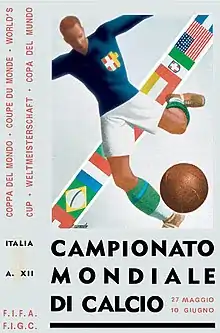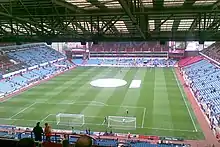| Main page | Categories & Topics | WikiProjects & Things you can do |
The Association football portal
Association football, more commonly known as football or soccer, is a team sport played between two teams of 11 players each, who primarily use their feet to propel a ball around a rectangular field called a pitch. The objective of the game is to score more goals than the opposing team by moving the ball beyond the goal line into a rectangular-framed goal defended by the opposing team. Traditionally, the game has been played over two 45-minute halves, for a total match time of 90 minutes. With an estimated 250 million players active in over 200 countries and territories, it is the world's most popular sport.
The game of association football is played in accordance with the Laws of the Game, a set of rules that has been in effect since 1863 and maintained by the IFAB since 1886. The game is played with a football that is 68–70 cm (27–28 in) in circumference. The two teams compete to get the ball into the other team's goal (between the posts and under the bar), thereby scoring a goal. When the ball is in play, the players mainly use their feet, but may use any other part of their body, except for their hands or arms, to control, strike, or pass the ball. Only the goalkeepers may use their hands and arms, and only then within the penalty area. The team that has scored more goals at the end of the game is the winner. Depending on the format of the competition, an equal number of goals scored may result in a draw being declared, or the game goes into extra time or a penalty shoot-out.
Internationally, association football is governed by FIFA. Under FIFA, there are six continental confederations: AFC, CAF, CONCACAF, CONMEBOL, OFC and UEFA. Of these confederations, CONMEBOL is the oldest one, being founded in 1916. National associations (e.g. The FA or JFA) are responsible for managing the game in their own countries both professionally and at an amateur level, and coordinating competitions in accordance with the Laws of the Game. The most senior and prestigious international competitions are the FIFA World Cup and the FIFA Women's World Cup. The men's World Cup is the most-viewed sporting event in the world, surpassing the Olympic Games. The two most prestigious competitions in European club football are the UEFA Champions League and the UEFA Women's Champions League, which attract an extensive television audience throughout the world. Since 2009, the final of the men's tournament has been the most-watched annual sporting event in the world. (Full article...)
Selected article
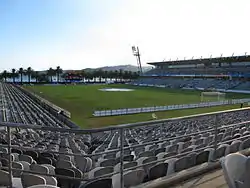
Formed in 2004, the Mariners participate in the A-League, being one of only three teams from New South Wales to play in the competition and the first professional club from the Central Coast to compete.
Despite being considered one of the smaller franchises at the inception of the A-League competition, Central Coast qualified for the first four domestic finals after their establishment. The Mariners had a successful first season, winning the 2005 Pre-Season Cup and losing in the A-League grand final to Sydney FC.
They made the final of the Pre-Season Cup again in 2006 but lost to Adelaide United and finished sixth in the 2006–07 A-League competition at the end of the season. (Full article...)
Selected biography
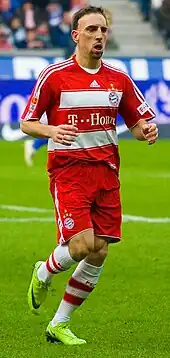
Ribéry's career began in 1989 as a youth player for local hometown club Conti Boulogne. He left the club after seven years to join professional outfit Lille, but departed the club after three years after having difficulties adjusting. In 1999, Ribéry joined US Boulogne, where he played for two years. After spending two more years in the amateur divisions with two different clubs (Alès and Brest), in 2004, Ribéry earned a move to Ligue 1 club FC Metz. After six months with the club, Ribéry moved to Turkey in January 2005 joining Galatasaray where he won the Turkish Cup. After six months at Galatasaray, he departed the club in controversial fashion in order to return to France to join Marseille. Ribéry spent two seasons at the club helping the Marseillais reach the final of the Coupe de France in back-to-back seasons. In 2007, Ribéry joined German club Bayern Munich for a then club-record fee of €25 million. With Bayern, he has won the double on two occasions; in the 2007–08 and 2009–10 seasons. In 2010, Ribéry contributed to the team that reached the 2010 UEFA Champions League Final, but was unable to participate in the match due to suspension.
Ribéry is a French international. Prior to representing the senior team, he played at under-21 level. At senior level, Ribéry has represented his nation two FIFA World Cups and UEFA Euro 2008. He made his international debut in May 2006 against Mexico. At the 2006 World Cup, Ribéry scored his first international goal against Spain and played in the final match against Italy. Individually, Ribéry is a two-time winner of the French Player of the Year award and has also won the German Footballer of the Year becoming the first player to hold both honours. He has also been named to the UEFA Team of the Year and declared the Young Player of the Year in France. (Full article...)
Selected association

The Oceania Football Confederation (OFC) is one of the six continental confederations of international association football. The OFC has 13 members, 11 of which are full members and two which are associate members not affiliated with FIFA. It promotes the game in Oceania and allows the member nations to qualify for the FIFA World Cup.
OFC is predominantly made up of island nations where association football is not the most popular sport, with low GDP and low population meaning very little money is generated by the OFC nations. The OFC has little influence in the wider football world, either in terms of international competition or as a source of players for high-profile club competitions. OFC is the only confederation to have not had at least one international title, the best result being Australia making the final of the 1997 FIFA Confederations Cup. (Full article...)
Did you know (auto-generated) -
- ... that Welsh footballer Jon Morgan went on to become a college principal after retiring?
- ... that Ryan Roberts, a defensive end for Notre Dame, was a soccer player in high school?
- ... that goalkeeper Sophie Whitehouse, who has lived in England, Africa and the US, has been chosen to play soccer for the Republic of Ireland?
- ... that Ecuadorian footballer Hernán Galíndez won a bicycle for beating a team featuring Lionel Messi when they were children?
- ... that Carlton Town F.C., now competing at the eighth tier of the English football pyramid, was once denied promotion by a hat-trick scored by future England international Jamie Vardy?
- ... that after his soccer career, Steve Palacios enlisted in the United States Army and played for the United States Armed Forces soccer team?
- ... that footballer Billy Hardy is Cardiff City F.C.'s record appearance holder, having played in 590 matches between 1911 and 1932?
- ... that the 2008 FA Cup Final between Cardiff City and Portsmouth holds the record for the highest attendance for a football match at the new Wembley Stadium, with 89,874?
Selected image
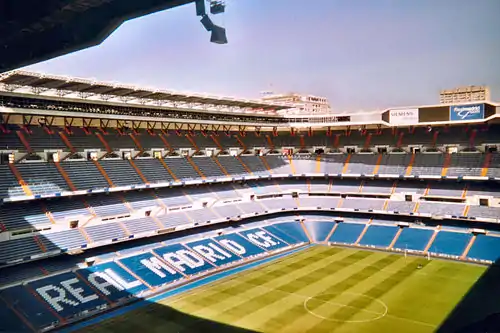
Selected quote
General images -
Selected World Cup
The 1934 FIFA World Cup was the second edition of the FIFA World Cup, the quadrennial international football championship for senior men's national teams. It took place in Italy from 27 May to 10 June 1934.
The 1934 World Cup was the first in which teams had to qualify to take part. Thirty-two nations entered the competition; 16 teams would qualify for the final tournament. Reigning champions Uruguay boycotted the tournament as only four European teams had accepted their invitation to the 1930 tournament. Italy beat Czechoslovakia 2–1 to become the second World Cup champions and the first European winners. (Full article...)Selected topic
|
Topic discussion 8 articles | ||||
|---|---|---|---|---|
| ||||
More did you know -
- ... that the opening goal of the 1992 Football League Third Division play-off Final was described as a "Russian linesman job"? (28 February 2021)
- ... that Coventry City's winning goal in the 1987 FA Cup Final was an own goal scored in extra time off Gary Mabbutt's knee? (30 January 2021)
- ... that thousands of football players are trafficked every year? (7 February 2021)
- ... that 23-year-old Michael Oliver refereed the 2009 Football League One play-off Final at Wembley Stadium the day after his father had officiated the 2009 Football League Two play-off Final? (11 March 2021)
- ... that Burnley won the 1994 Football League Second Division play-off Final after two opposition players were sent off? (15 April 2021)
- ... that despite losing the 1990 Football League Third Division play-off Final, Tranmere Rovers were temporarily promoted to the Second Division? (29 April 2021)
Association football portals
More sports portals
Associated Wikimedia
The following Wikimedia Foundation sister projects provide more on this subject:
-
 Commons
Commons
Free media repository -
 Wikibooks
Wikibooks
Free textbooks and manuals -
 Wikidata
Wikidata
Free knowledge base -
 Wikinews
Wikinews
Free-content news -
 Wikiquote
Wikiquote
Collection of quotations -
 Wikisource
Wikisource
Free-content library -
 Wikiversity
Wikiversity
Free learning tools -
 Wiktionary
Wiktionary
Dictionary and thesaurus
More portals
-
 List of all portalsList of all portals
List of all portalsList of all portals -
 The arts portal
The arts portal -
 Biography portal
Biography portal -
 Current events portal
Current events portal -
 Geography portal
Geography portal -
 History portal
History portal -
 Mathematics portal
Mathematics portal -
 Science portal
Science portal -
 Society portal
Society portal -
 Technology portal
Technology portal -
 Random portalRandom portal
Random portalRandom portal -
 WikiProject PortalsWikiProject Portals
WikiProject PortalsWikiProject Portals
- ↑ "Franck Ribéry". fcbayern.de. Retrieved 11 March 2009.
- ↑ "Franck Ribéry ESPN Profile". ESPN. Retrieved 5 October 2011.
- ↑ "A Ferrari in the Bayern shirt". Bundesliga.de. 27 November 2007. Retrieved 10 April 2010.

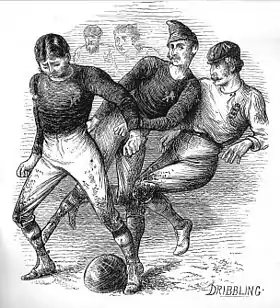
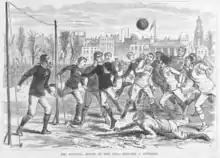
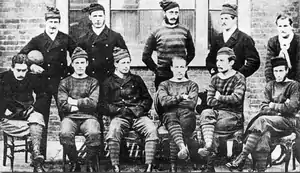
_(14777984175).jpg.webp)
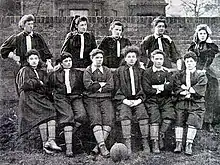
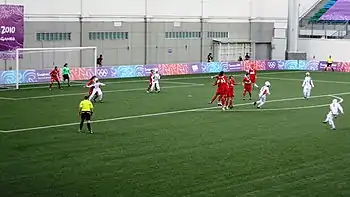
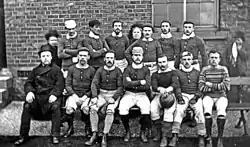
.jpg.webp)
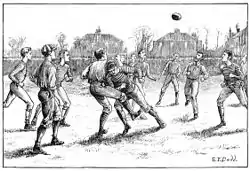
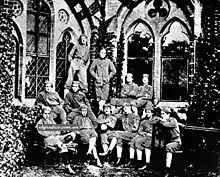
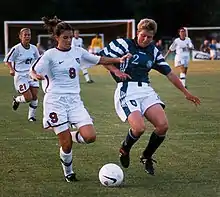
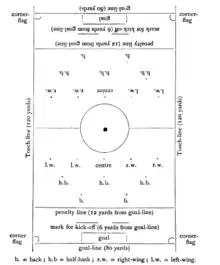
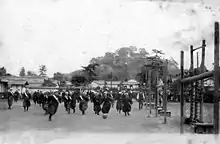
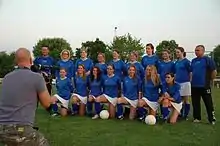

.jpg.webp)
